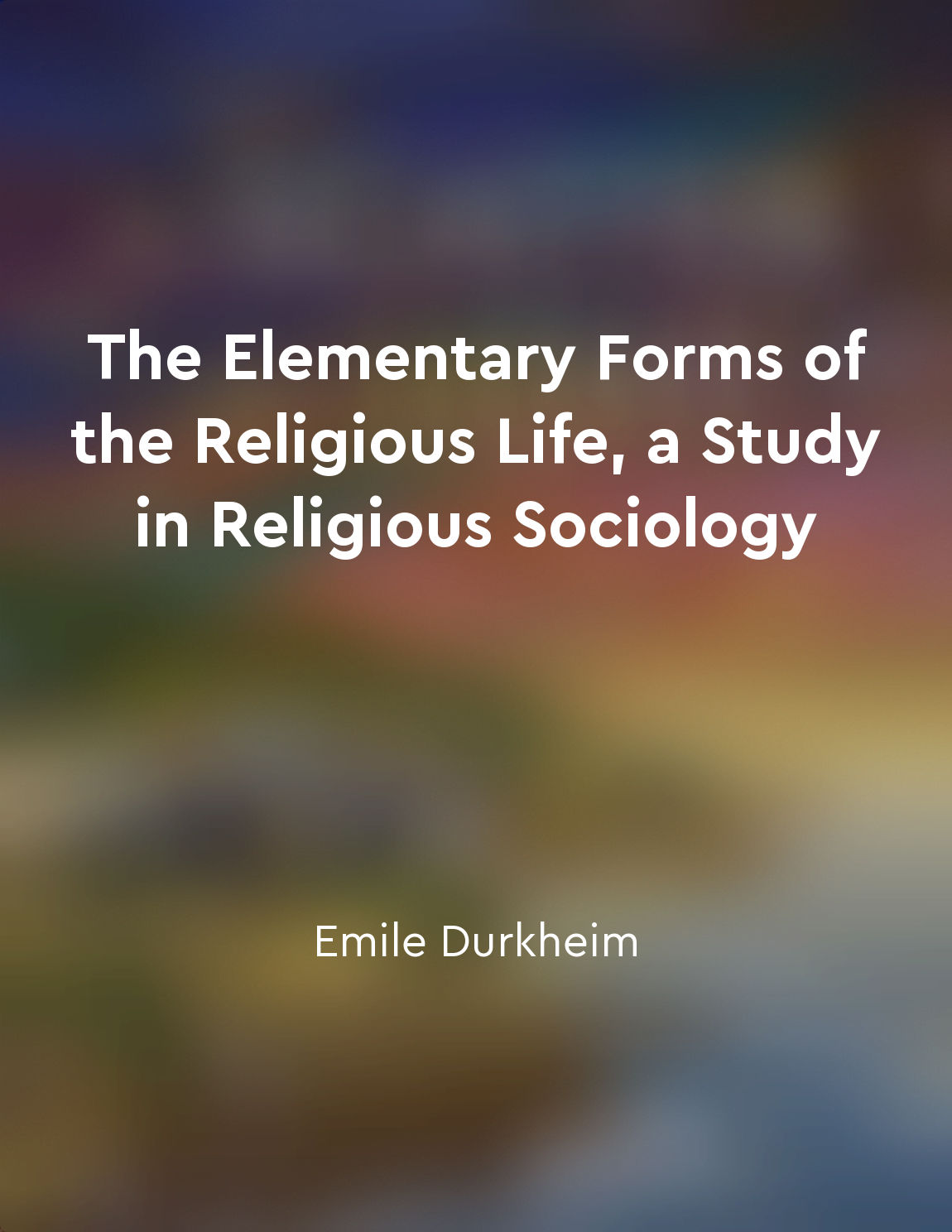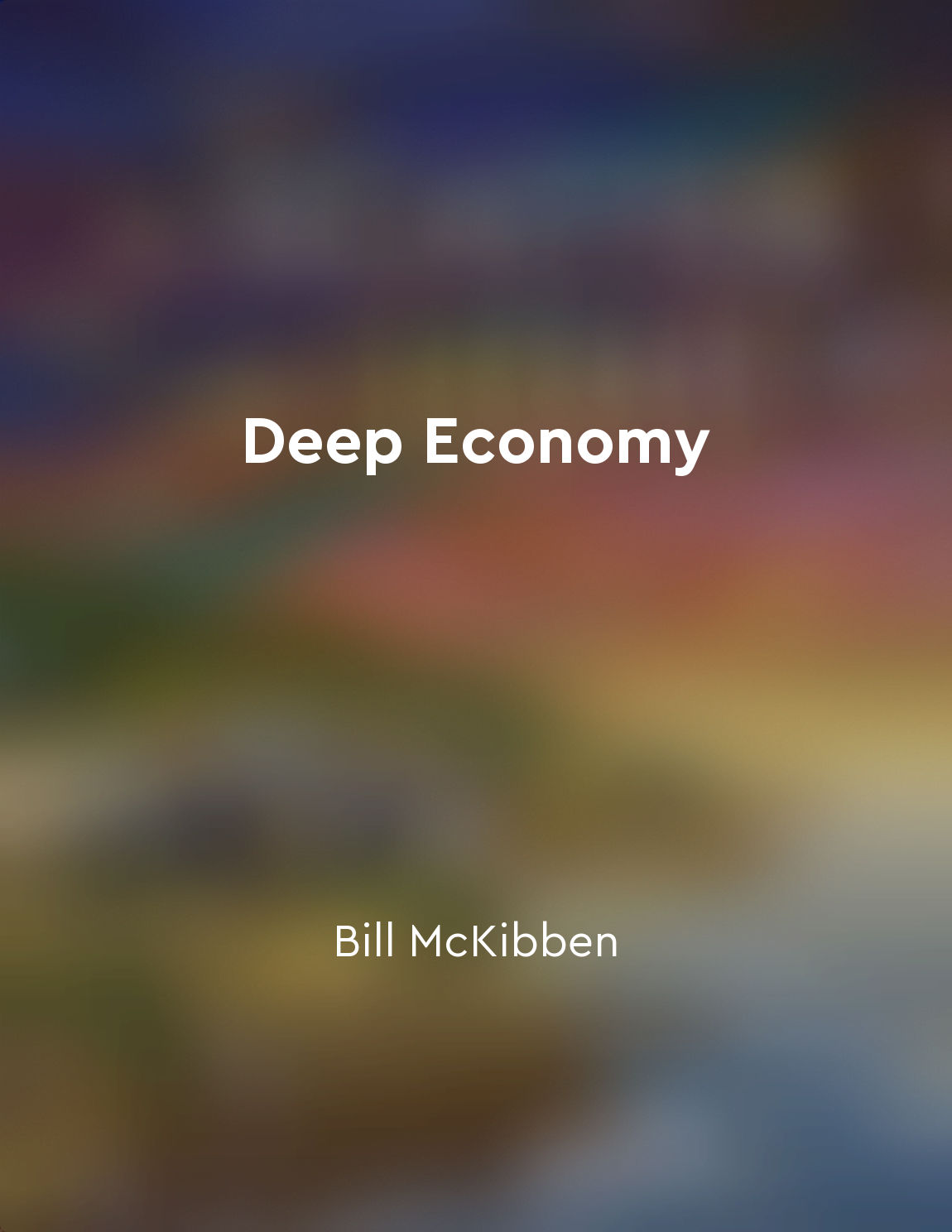Participation in religious organizations fosters social capital from "summary" of Bowling Alone by Robert D. Putnam
Participation in religious organizations plays a crucial role in fostering social capital. People who actively engage in religious communities tend to develop stronger social ties with others. These connections are built on shared values, beliefs, and experiences, creating a sense of trust and solidarity among members. Through regular interactions such as attending worship services, volunteering for charitable activities, or participating in religious rituals, individuals form bonds that extend beyond the confines of the religious institution. These social networks provide a support system for individuals in times of need. Whether it be emotional support during a personal crisis or practical assistance in times of hardship, religious communities often rally around their members to offer help and guidance. This sense of belonging and interconnectedness strengthens the fabric of society, contributing to a more cohesive and resilient community. Furthermore, participation in religious organizations promotes civic engagement. Members of religious communities are more likely to be involved in charitable work, community service projects, and other forms of volunteerism. This active participation not only benefits the wider community but also instills a sense of civic responsibility and commitment among individuals. By working together towards common goals, people develop a sense of collective efficacy and empowerment, which can lead to positive social change.- The bonds formed within religious organizations serve as a valuable source of social capital. They enhance social cohesion, promote civic engagement, and provide individuals with a sense of belonging and support. In an increasingly fragmented and individualistic society, the role of religious communities in fostering social capital cannot be underestimated. Through these connections, people are able to build stronger communities, support one another, and work towards a common good.
Similar Posts
Empowering marginalized voices
Toni Morrison delves into the importance of amplifying the voices of those who have been pushed to the margins of society. She ...
The impact of religious wars on society
The tumult of religious wars reverberates through the pages of history, leaving an indelible mark on society. The clash of beli...
Let go of past regrets
I used to have a lot of regrets. Things I wish I had done differently, moments I wish I had handled better. I would lie awake a...
Embrace failure as a stepping stone to success
Failure is an integral part of the journey to success. It is not something to be feared or avoided, but rather embraced as a ne...
Visualization techniques
Visualization techniques are powerful tools that can help us create the life we desire. By vividly imagining our goals and desi...

Prioritizing selfcare is crucial for overall well-being
Prioritizing self-care is critical for our well-being. It is about recognizing that we are worthy of care and attention, just l...
We must prioritize the wellbeing of all beings
The central idea we need to embrace is that the wellbeing of all beings must take precedence in our decision-making processes i...

Totemism exemplifies the essence of religion
Totemism, as a religious phenomenon, reveals the fundamental nature of religion itself. Through the study of totemism, we can g...
Find joy in the present moment
The concept of finding joy in the present moment is a powerful idea that can transform our lives in profound ways. It reminds u...

Environmental degradation is a result of unchecked growth
Unchecked growth has been a prevailing force in our society, driving economies and shaping the way we live. However, this unche...

